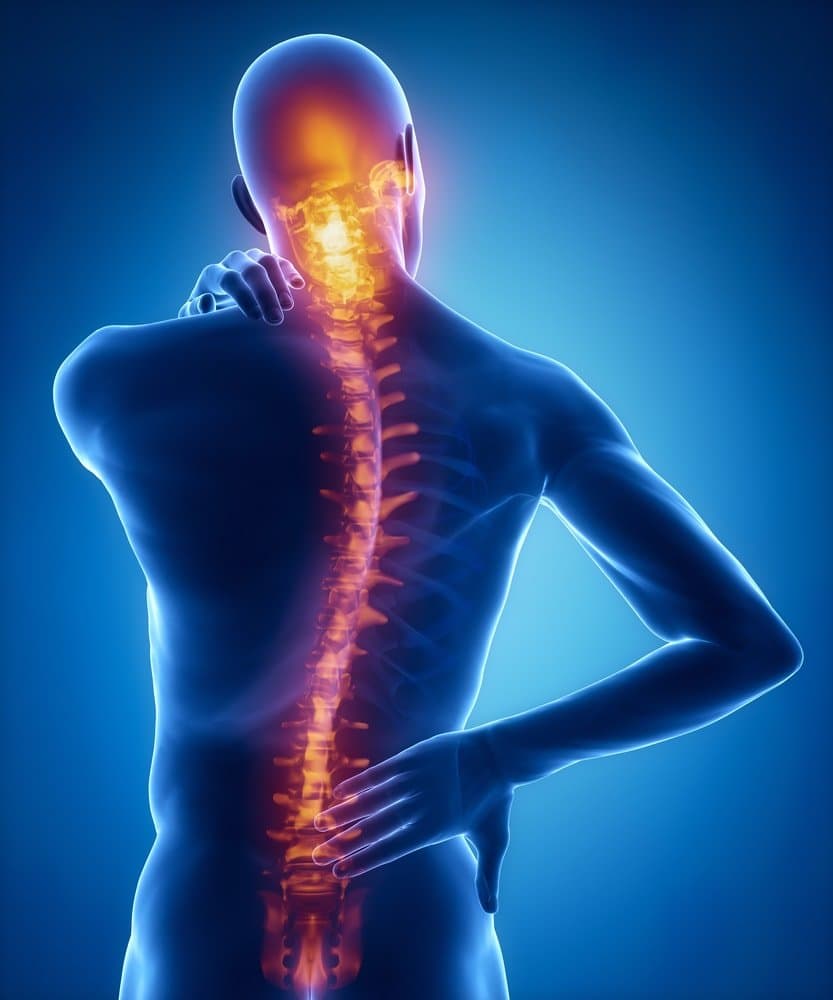WHAT IS SPINAL INJURY?
Spinal cord injury is damage to any part of the spinal cord or nerves at the end of the spinal canal (cauda equina) often causing everlasting conversion in strength, sensation, and other functions of the body below the injury site.
If you recently suffered a spinal cord injury, it seems like every aspect of your life has been affected. You may feel the mental, emotional, and social effects of the injury.
Many scientists are optimistic that advances in research will one day help heal spinal cord injuries. Research is underway around the world. Meanwhile, treatment and rehabilitation allow many people with spinal cord injuries to lead productive and independent lives.
TREATMENT OF SPINAL INJURIES AT SPECIALTY CARE CLINICS:
For spinal injuries surgical and non-surgical therapies are available at Specialty Care Clinics.
First, our doctors look at non-surgical options. Our team will tell you if you require surgery and will proceed with your treatment appropriately.
Our specialists have the knowledge, experience and tools necessary to handle even the most difficult spinal injury conditions.
If you experience any symptoms of spinal injuries, call for medical help quickly.
To schedule an appointment for treatment of spinal injuries at Specialty Care Clinics dial (469) 545-9983.
WHAT ARE THE CAUSES OF SPINAL INJURIES?
Spinal cord injuries can be caused because of harm to the vertebrae, ligaments, or discs of the spine or the spinal cord itself.
Spinal cord injuries can result from a sudden, traumatic blow to the spine that fractures, dislocates, crushes, or compresses one or more of your vertebrae. It can also be the result of a gunshot or knife wound that pierces and cuts your spinal cord.
Further damage usually occurs over days or weeks due to bleeding, swelling, inflammation, and fluid buildup in and around the spinal cord.
Non-traumatic spinal cord injury can be caused by arthritis, cancer, inflammation, infection, or degenerative disc disease.
Common causes of Spinal Cord Injuries:
- Diseases
- Accident
- Falling
- Sports Injury
- Violent attacks like gunshot or knife wound

WHAT ARE THE SYMPTOMS OF SPINAL INJURIES?
Symptoms of spinal cord injury depend on the type (complete or incomplete) and location of the impairment. Seek immediate medical attention if you notice any of the following after an injury:
- Weakness in the arms and/or legs.
- Decreased sensation in the hands and/or feet.
- Loss of bladder or bowel control.
- Severe pain or pressure in the neck or back
- Abnormal mass lumps along the spine.
- Shortness of breath.
HOW ARE SPINAL INJURIES DIAGNOSED?
In the hospital room, your doctor can rule out a spinal cord injury by examining you, checking your sensory and motor function, and asking some questions about the injury.
But if the injured person complains of neck pain, is not fully awake, or has obvious signs of weakness or nerve injury, urgent diagnostic testing may be needed.
These tests may include:
X-rays: X-rays can reveal vertebrae (spine) problems, tumors, fractures, or degenerative changes in the spine.
CT scan: A CT scan can provide a clearer picture of abnormalities seen on X-rays. This scan uses a computer to create a series of cross-sectional images that can identify problems with bones and discs. and other problems.
MRI: An MRI uses a strong magnetic field and radio waves to create computer-generated images. This test is useful to examine the spinal cord and identify herniated discs, blood clots, or other masses that may be compressing the spinal cord.
A few days after the injury, when some of the swelling has subsided, the doctor will perform a more comprehensive neurological examination to determine the extent and completeness of the injury. It involves testing your muscle strength and your ability to feel light touch and pins and needles.

WHAT TREATMENTS ARE AVAILABLE FOR SPINAL INJURIES?
If you suffer a spinal cord injury, you will be immediately admitted to the intensive care unit for treatment. You may be shifted to an area spinal cord injury center that has a team of neurosurgeons, spinal medicine specialists, orthopedic surgeons, psychologists, nurses, therapists, and social workers specializing in spinal cord injuries.
Medication: Methylprednisolone (Solu-Medrol) given through an arm vein (IV) has been used as a treatment option for acute spinal cord injury in the past. But recent research has shown that the potential side effects, such as blood clots and pneumonia, of using this drug outweigh the benefits.
For this reason, methylprednisolone is no longer recommended for routine use following spinal cord injury.
Surgery: Often, surgery treatment is needed to withdraw bone fragments, foreign bodies, herniated discs, or broken vertebrae that seem to be compressing the spine. Surgery can also be required to stabilize the spine for preventing future pain or deformity.
Experimental treatments: Scientists are trying to search for ways to stop cell death, control inflammation and promote nerve regeneration. For example, a drop in body temperature, a condition known as hypothermia for 24 to 48 hours can help prevent harmful inflammation. More research is needed.
Immobilization: You may need traction to stabilize or align your spine. Options include soft collars and a variety of braces
HOW TO PREVENT SPINAL INJURIES?
Prevent spinal injuries by keeping these things in mind:
- Avoid falling hazards such as ladders.
- Drive safely and wear seat belts in motor vehicles.
- Wear appropriate protective equipment when playing sports.
For better diagnosis and treatment of spinal injuries visit Specialty Care Clinics, call us to book an appointment, or dial (469) 545-9983.
